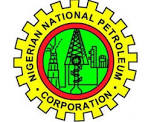 Data recently released by the National Bureau of Statistics (NBS) detailing petrol prices across the country between June 2014 and June 2015 revealed that premium motor spirit (petrol) was sold across the country at prices far higher than the government approved price. The shocking revelation showed that consumers in oil-rich Bayelsa State as well as Lagos, the gateway of imported petroleum products, paid the highest prices per litre within the period under review.
Data recently released by the National Bureau of Statistics (NBS) detailing petrol prices across the country between June 2014 and June 2015 revealed that premium motor spirit (petrol) was sold across the country at prices far higher than the government approved price. The shocking revelation showed that consumers in oil-rich Bayelsa State as well as Lagos, the gateway of imported petroleum products, paid the highest prices per litre within the period under review.
According to the report which presented average monthly prices actually paid for petrol across the 36 states of the federation and the Federal Capital Territory, consumers in Bayelsa State paid the highest price of N155 per litre in June 2015 while their counterparts in Lagos State paid the second highest price of N149.13 in May 2015.
The data further revealed that price per litre in states like Yobe, Rivers, Taraba, Enugu, Cross River, Borno, Ebonyi, Kebbi, Kogi and Nasarawa was well above N100. On the average, the data showed that in 2014, a litre of petrol sold across the country for N104.49 in June, N106.48 in July, N102.84 in August and N102.75 in September. The trend continued in October with an average price of N104.07, N106.94 in November and N105.07 in December.
In January 2015, Nigerians paid an average of N103.65 a litre, N93 in February, N103.85 in March, N104.13 in April, N118.36 in May and N112.13 in June 2015 respectively. This, in our view, is unacceptable. While this revelation exposes the failure of the Department of Petroleum Resources (DPR) to effectively regulate petroleum prices in the downstream oil and gas sector, it further emphasises the need to revisit the subsidy policy.
In our opinion, this development calls to question the rationale behind the billions of naira paid out as subsidy, the aim of which was ensure that the product sells at government regulated price all over the country. It is obvious from the foregoing that the purpose of the subsidy policy is not being realised. If anything, Nigerians are being shortchanged at both ends.
To this extent, therefore, we are persuaded to canvass for the removal of petrol subsidy as one of the ways of opening up the industry so as to attract investors who prefer to do business in a predictable environment. Opening up the market to investors through deregulation will lead to the springing up of private refineries. It will also enhance job creation and ultimately save the country the billions of naira spent on subsidy payments.
Furthermore, the country will begin to earn foreign exchange from the export of refined products, be free from the shock of crude oil price fall and, hopefully, steady the naira against other major currencies.
END

Be the first to comment